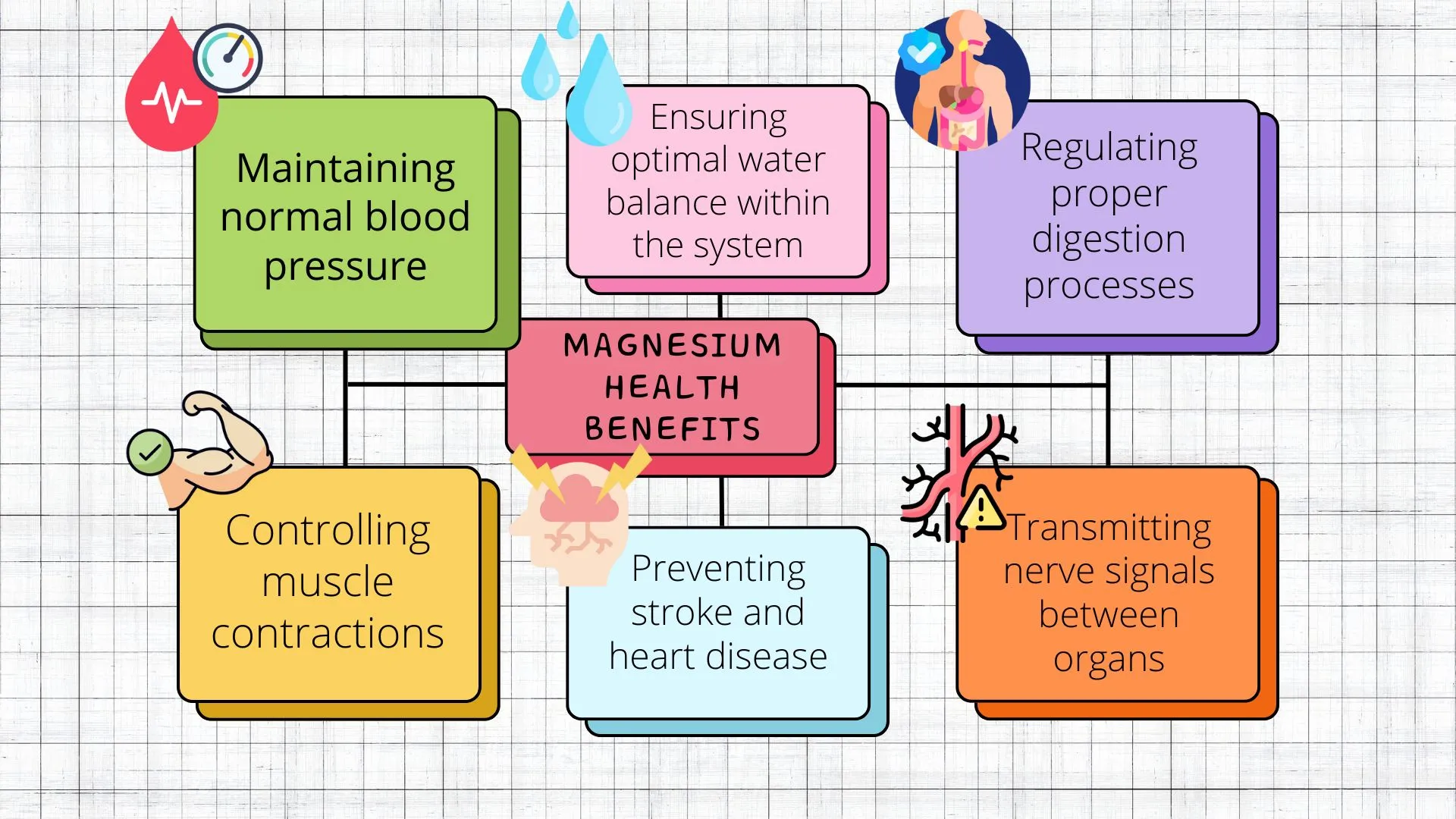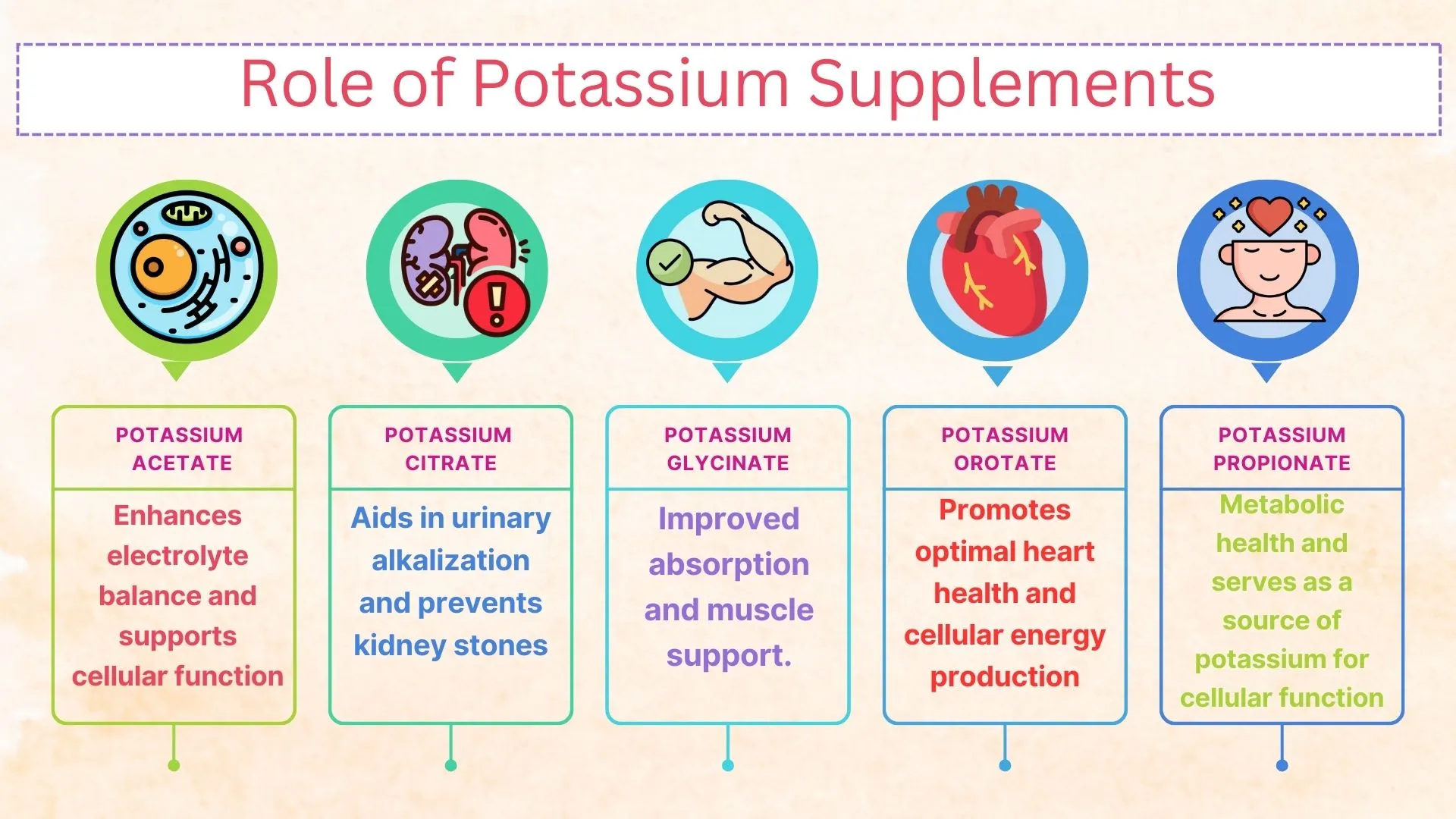Understanding Potassium Deficiency- Symptoms, Causes, and Treatment
Potassium is one of the essential mineral that plays significant role in the human body. When it comes to ‘deficiency’, we always care about ‘iron deficiency ‘, ‘potassium deficiency’, and ‘calcium deficiency’. Perhaps the low iron or calcium level is too prominent to ignore. But low level potassium is the real thing. It can cause various symptoms. Potassium helps to maintain healthy nerve function, regulate muscle contractions and more.
Despite the fact that the Indian diet is considered one of the most nutritious, it has been observed that many adults still do not get enough potassium from their daily intake. This is particularly concerning given that a well-balanced Indian diet typically provides ample potassium. However, the increasing consumption of unhealthy foods among both youngsters and adults is leading to a higher risk of potassium deficiency.
Low Potassium Levels occurs when the potassium level in blood is decreases by 3.5 nmol/ltr. This medical situation is known as hypokalemia.
Keep reading to know more about potassium and its deficiency.
What are the symptoms of potassium deficiency?
Symptoms of Potassium Deficiency
Potassium is a vital mineral and electrolyte necessary for various bodily functions, including maintaining proper muscle and nerve function, regulating heart rhythm, and balancing fluids. When the body lacks sufficient potassium, a condition known as hypokalemia can occur. This deficiency can manifest in numerous symptoms, which vary in severity based on the level of potassium depletion. Below, we explore the common and severe symptoms of potassium deficiency in detail.
-
Muscle Weakness and Cramps
Muscle weakness is one of the earliest and most common signs of potassium deficiency. Potassium is crucial for muscle contractions, and insufficient levels can lead to muscle fatigue and cramps. Individuals may experience persistent muscle aches and stiffness, particularly in the legs, arms, and back. These cramps can be mild or severe, often occurring during physical activity or even at rest.
-
Fatigue and Weakness
Generalized fatigue and weakness are frequent complaints among those with low potassium levels. Potassium plays a key role in cellular energy production, and a deficiency can impair the body’s ability to generate energy efficiently. This results in a constant feeling of tiredness, even with adequate rest, making daily tasks more challenging.
-
Irregular Heartbeat (Arrhythmia)
One of the more serious symptoms of Low Potassium Levels is an irregular heartbeat or arrhythmia. Potassium helps regulate the electrical impulses that control the heart’s rhythm. A deficiency can lead to palpitations, a fluttering sensation in the chest, or more severe arrhythmias, which can be life-threatening if not addressed promptly.
-
Constipation and Digestive Issues
Potassium is essential for smooth muscle function in the digestive tract. Low levels can slow down gastrointestinal motility, leading to constipation and other digestive problems such as bloating and abdominal pain. These symptoms can become chronic if the deficiency is not corrected.
-
Muscle Twitching and Spasms
In addition to cramps, potassium deficiency can cause involuntary muscle twitching and spasms. These involuntary movements are due to the disrupted balance of electrolytes that affects nerve signaling and muscle control.

-
Numbness and Tingling
Numbness and tingling sensations, particularly in the extremities, can occur with potassium deficiency. This is because potassium is involved in nerve function, and its deficiency can impair the transmission of nerve signals, leading to sensations of pins and needles, especially in the hands, feet, and fingers.
-
Breathing Difficulties
Severe Low Potassium Levels can affect the muscles that control breathing, leading to shortness of breath or respiratory distress. This occurs because the diaphragm and other respiratory muscles require potassium for proper contraction and relaxation.
-
Mood Changes and Mental Fog
Potassium plays a role in brain function and mood regulation. Low potassium levels can lead to mood changes such as irritability, depression, and mental fog. Individuals may find it difficult to concentrate, experience memory lapses, and feel unusually anxious or stressed.
-
Increased Thirst and Frequent Urination
Potassium deficiency can disrupt the body’s fluid balance, leading to increased thirst and frequent urination. This can exacerbate the deficiency, as excessive urination can cause further loss of potassium.
-
High Blood Pressure
Potassium helps balance sodium levels in the body, and a deficiency can contribute to high blood pressure (hypertension). This is because low potassium levels can lead to sodium retention, increasing blood pressure and putting additional strain on the cardiovascular system.

What are the causes of potassium deficiency?
- Inadequate Dietary Intake: Insufficient consumption of potassium-rich foods such as fruits, vegetables, and legumes.
- Excessive Sweating: Loss of potassium through sweat, common in athletes and individuals in hot climates.
- Gastrointestinal Disorders: Conditions like Crohn’s disease, ulcerative colitis, and chronic diarrhea can lead to poor potassium absorption and increased loss.
- Kidney Disorders: Chronic kidney disease and other renal issues can cause the kidneys to excrete too much potassium.
- Certain Medications: Diuretics, laxatives, and some antibiotics can increase potassium excretion or decrease absorption.
- Excessive Alcohol Consumption: Alcohol can cause increased urination, leading to potassium loss.
- Eating Disorders: Conditions such as anorexia and bulimia can lead to inadequate potassium intake and excessive loss.
- Severe Vomiting: Prolonged vomiting can deplete the body’s potassium reserves.
- Magnesium Deficiency: Low magnesium levels can interfere with potassium retention in the body.
- Excessive Sodium Intake: High sodium consumption can lead to an imbalance that results in the body excreting more potassium.
- Hormonal Imbalances: Conditions like hyperaldosteronism can cause the body to lose excessive amounts of potassium.
- Chronic Stress: Prolonged stress can affect hormonal balance, leading to increased potassium excretion.
- Fasting and Crash Diets: Extreme dietary restrictions can result in inadequate potassium intake.
- Inherited Disorders: Genetic conditions such as Bartter syndrome and Gitelman syndrome affect potassium levels.
- Burns and Trauma: Significant injuries can lead to the loss of fluids and electrolytes, including potassium.
How to Treat Potassium deficiency/hyperkalemia?
In most cases, hypokalemia requires treatment by a healthcare professional.
Mild to Moderate Hypokalemia: Typically treated with oral potassium supplements
A healthcare professional may need to adjust other medications or address underlying causes such as diarrhea, vomiting, or eating disorders.
Dietary Considerations:
A potassium-rich diet alone is usually insufficient to treat hypokalemia because most dietary potassium is paired with phosphate, not potassium chloride.
Hypokalemia often involves a chloride deficiency, so treating both deficiencies with potassium chloride supplements is usually necessary.
Supplement Dosage:
It is crucial to always follow the recommendations of a healthcare professional.

Severe Hypokalemia:
- May require intravenous (IV) treatment.
- IV treatment should be strictly monitored by a healthcare professional due to the high risk of rebound hyperkalemia (high potassium levels), which can be fatal.
- Potassium compounds play various roles in maintaining health and treating deficiencies, each with unique properties and applications.
- Potassium citrate is commonly used to prevent kidney stones and treat conditions that cause low potassium levels, helping to alkalize urine and balance electrolytes.
- Potassium orotate is noted for its potential to support cellular energy production and cardiovascular health, often used in supplements aimed at boosting athletic performance.
- Potassium propionate serves as a preservative in food, inhibiting the growth of mold and bacteria, ensuring food safety and extending shelf life.
- Potassium glycinate is a chelated form of potassium, designed to improve absorption and reduce gastrointestinal discomfort, making it an effective supplement for those with low potassium levels.
- Potassium acetate is used in medical settings to correct severe hypokalemia and also acts as an acidity regulator in food processing. Together, these potassium salts demonstrate the versatility of potassium in both therapeutic and practical applications, contributing to overall health and well-being.
Conclusion
Potassium is an essential mineral that plays a critical role in maintaining muscle and nerve function, regulating heart rhythm, and balancing bodily fluids. Despite the nutritional richness of the Indian diet, the rising consumption of unhealthy foods has led to a notable increase in Low Potassium Levels among adults and youngsters. Recognizing the symptoms of hypokalemia, such as muscle weakness, fatigue, irregular heartbeat, and digestive issues, is crucial for timely intervention. Various factors, including inadequate dietary intake, excessive sweating, certain medical conditions, and medications, can cause potassium deficiency.
Treatment typically involves oral potassium supplements, dietary adjustments, and, in severe cases, intravenous treatment. Different potassium compounds, such as potassium citrate, potassium orotate, potassium propionate, potassium glycinate, and potassium acetate, offer versatile applications in preventing and treating deficiencies. Addressing potassium deficiency effectively is vital for overall health and well-being.
- Institute of Medicine (IOM). Food and Nutrition Board. Dietary Reference Intakes: Calcium, Phosphorus, Magnesium, Vitamin D and Fluorideexternal link disclaimer. Washington, DC: National Academy Press, 1997.
- Rude RK. Magnesium. In: Ross AC, Caballero B, Cousins RJ, Tucker KL, Ziegler TR, eds. Modern Nutrition in Health and Disease. 11th ed. Baltimore, Mass: Lippincott Williams & Wilkins; 2012:159-75.
- Fine KD, Santa Ana CA, Porter JL, Fordtran JS. Intestinal absorption of magnesium from food and supplements. J Clin Invest 1991;88:396-402. [PubMed abstract]
https://en.wikipedia.org/wiki/Magnesium
https://www.britannica.com/science/magnesium - Bao G, Fan Q, Ge D, Sun M, Guo H, Xia D, Liu Y, Liu J, Wu S, He B, Zheng Y. In vitro and in vivo studies on magnesium alloys to evaluate the feasibility of their use in obstetrics and gynecology. Acta Biomater. 2019 Oct 01;97:623-636.
- Mori H, Suzuki H, Hirai Y, Okuzawa A, Kayashima A, Kubosawa Y, Kinoshita S, Fujimoto A, Nakazato Y, Nishizawa T, Kikuchi M. Clinical features of hypermagnesemia in patients with functional constipation taking daily magnesium oxide. J Clin Biochem Nutr. 2019 Jul;65(1):76-81.
Mori H, Tack J, Suzuki H. Magnesium oxide in constipation. Nutrients. 2021;13:421. [PMID: 33525523] doi: 10.3390/nu13020421
